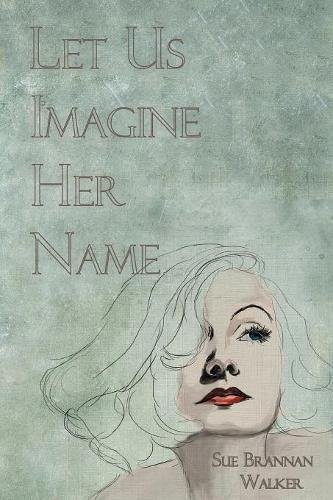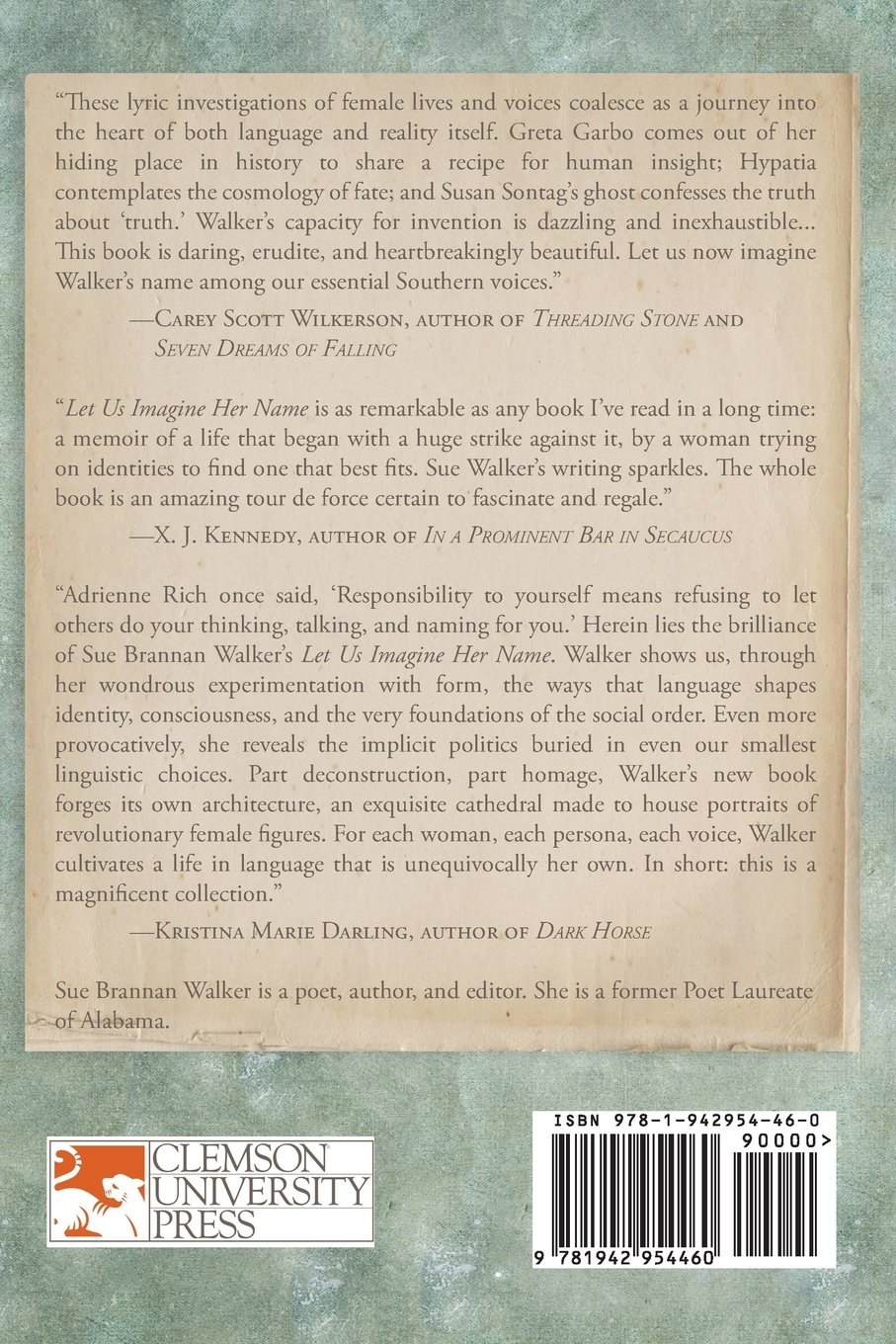Charlotte Pence reviews "Let Us Imagine Her Name" by Sue Brannan Walker.
Let Us Imagine Her Name by Sue Brannan Walker
Reviewed by Charlotte Pence, Director of the Stokes Center for Creative Writing at University of South Alabama
“On a dirt road in Tuscaloosa, red and rutted, a girl turned woman, turned crone, wants a name—not the surname of the father who could not, would not marry the mother, for he already had a wife, this carpenter-papa named William, who said it was best to dispense with the child and hand her off like a sack of new potatoes.”
So begins an early chapter from Let Us Imagine Her Name, a new book by former Alabama poet laureate Sue Brannan Walker. This work is a lyrical, evocative exploration of identity by a writer who wonders about her birth parents.
Walker cultivates a history through invention, imagination, and investigation by entering into imagined conversations with other female figures such as Abigail Adams, Greta Garbo, Esther from Toomer’s Cane, Xue Xinran, Margaret Mead, and, of course, Olive Oyl. To help situate readers, Walker writes of the book’s unique approach early in the collection: “Often she asked herself who she might be if she could be anyone, if she might give herself a name, and so this account is her own invention, a memoir in the form of an abecedarian—an alphabetical listing—whereby the writer makes determinations about who she might be.”
Unlike those of the Victorian era, few poets today fully use the weight of the direct address in poetry, that pronominal “you,” perhaps because of a nagging sense that we aren’t really talking to anyone. But Let Us Imagine Her Name gains so much of its energy through this direct address, allowing readers to eavesdrop among the great women.
As an adopted child, Sue Walker wondered about her history—which is another way to say she wonders about her present. Part memoir, part poetry, and part something else that I refuse to name as anything other than inspired, this book seeks to articulate how a person comes to build the self. The authorial “I” in this collection tries on different personas in an attempt at wholeness.
Not only does the book explore personal identity, but also lyrical forms—which one could say is identity in the genre of poetry. One of the many things I love about this book is its gutsiness to play, be it through 43-word titles, a mish-mash of Fanny Farmer recipes and cooking advice, conversations with quotes from Jean Toomer’s Cane, and much more.
Ultimately, the book’s playfulness leads to authority and power, such as the power of naming. “The first step to wisdom… is getting things by their right names,” E.O. Wilson wrote. And yet the act of naming is a process that is never completed, for as we all know, life continuously changes—as have those objects we attempt to define by their names. While investigating identity, Walker is aware of the elusiveness of such a search with her epigraph from Derrida that states “Give me a name? But why? I don’t know exactly; maybe to lose my own.”
This collection doesn’t attempt to find ‘the whole truth,’ which Walker describes as “green as unmowed grass.” The truth in this book comes as it often does: in fragments that don’t always join but sometimes do, like a jigsaw puzzle made from ten puzzles all thrown into one box. Sue Brannan Walker’s book embraces the fact that we are more than what anyone can see or articulate. The search for self is often as close as one will come to finding any answers.
Charlotte Pence's first book of poems, Many Small Fires (Black Lawrence Press, 2015), received an INDIEFAB Book of the Year Award from Foreword Reviews. She is also the author of two award-winning poetry chapbooks and the editor of The Poetics of American Song Lyrics. In August of 2017, she moved to Mobile to become the director of the Stokes Center for Creative Writing at University of South Alabama.




